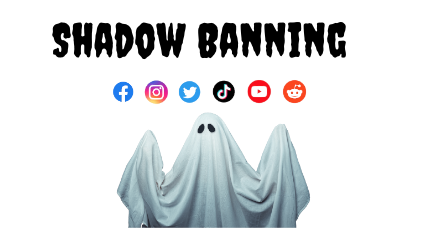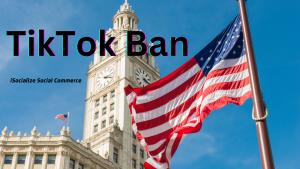
Join iSocialize.me a social network that does not do shadow banning.
Shadow Banning: An Overview and Platform Practices
Shadow banning is a controversial technique used by social media platforms to restrict a user’s visibility without their knowledge. Unlike traditional bans, where users are explicitly informed and prevented from using certain features, shadow banning subtly limits the reach of users’ content, making it less visible or discoverable to others. This practice aims to curb inappropriate behavior, misinformation, or spam without alerting the offending user, thereby avoiding potential backlash or attempts to circumvent restrictions.
Facebook and Instagram:
Owned by Meta, Facebook and Instagram employ shadow banning primarily to tackle misinformation, hate speech, and violations of community guidelines. Users suspected of violating rules may find their posts receiving significantly lower engagement, with hashtags becoming ineffective and content not appearing in searches or feeds. These platforms use sophisticated algorithms to detect problematic content, which is then quietly deprioritized. For instance, Instagram users may notice their posts no longer appearing under certain hashtags or reaching their usual audience size without any formal notification of a penalty.
Reddit:
Reddit uses shadow banning to manage spam and toxic behavior within its communities. When a user is shadow banned, their posts and comments become invisible to everyone except themselves. This method helps maintain the quality of discussions without igniting confrontations with the banned user. Moderators and automated systems work together to identify and mitigate rule violations, ensuring that subreddits remain conducive to constructive conversations.
Twitter:
Twitter has faced accusations of shadow banning, particularly around politically sensitive content. While Twitter denies the existence of shadow banning, it acknowledges using “visibility filtering” to limit the reach of tweets that violate its policies. This can include reducing the visibility of replies, removing tweets from search results, or not amplifying content that triggers its automated systems. Users may experience a decline in engagement without understanding why, leading to speculation about shadow banning practices.
TikTok:
TikTok’s rapid growth has brought scrutiny to its content moderation strategies, including shadow banning. TikTok uses algorithms to detect and restrict content that breaches community guidelines or appears inappropriate. Users who are shadow banned on TikTok may notice their videos receiving fewer views, likes, or comments than usual. Content flagged by the system is often suppressed in the For You feed, limiting its potential reach and virality.
Conclusion:
Shadow banning remains a contentious issue, balancing the need for platforms to enforce community standards with concerns about transparency and fairness. Users across Facebook, Instagram, Reddit, Twitter, and TikTok may experience reduced visibility without explicit notification, raising questions about the ethics and effectiveness of this practice. As social media continues to evolve, the debate over shadow banning and its implications for free expression and user engagement is likely to persist.






